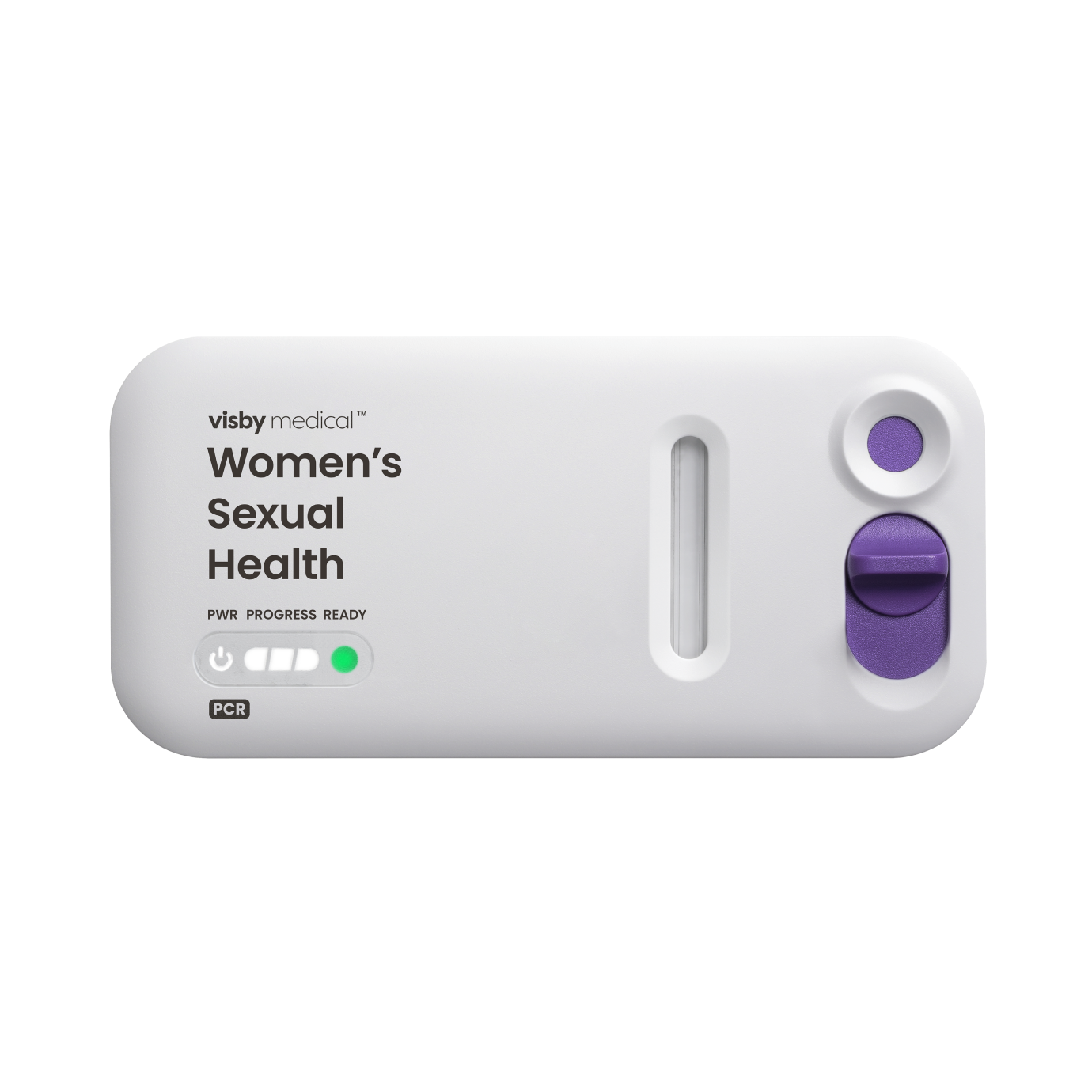
Written on December 23, 2022 by Amy Harris, MS, RN, CNM. To give you technically accurate, evidence-based information, content published on the Everlywell blog is reviewed by credentialed professionals with expertise in medical and bioscience fields.
Table of contents
- What causes gonorrhea?
- Can you have gonorrhea and not know it?
- What are the symptoms of gonorrhea?
- Should you get treated if your partner has gonorrhea?
- If your symptoms go away, but you didn’t get treated, do you still have gonorrhea?
- How do I know if my gonorrhea has gone away?
- Everlywell to the rescue with private STI telehealth visits
- Related content
Gonorrhea can’t go away on its own. But keep reading to learn more about one of the most common sexually transmitted infections (STIs) in people ages 15-29 in the United States today [1]. Gonorrhea affects both men and women, but rates of gonorrhea are rising and are higher in men who have sex with men [2]. Don’t be fooled by this STI’s lack of symptoms or symptoms that come and go. You can take care of your sexual health by learning more about STIs like gonorrhea, always using condoms, and regularly testing for STIs with the tests like the at-home STI tests offered by Everlywell.
What causes gonorrhea?
The sexually transmitted bacteria called Neisseria gonorrhoeae can infect your genitals (penis, vagina, cervix, urethra), rectum, and throat. Having vaginal, anal, or oral sex with someone with gonorrhea spreads the bacteria from one person to another. You cannot catch gonorrhea from limited kissing, sharing baths, towels, or cups, or from toilet seats. Sharing sex toys can spread gonorrhea, however [3].
Can you have gonorrhea and not know it?
Yes. Only about half of women with gonorrhea will have symptoms, and about one out of every 10 men infected with gonorrhea will have symptoms, according to the CDC [4]. Some people have mild symptoms of gonorrhea, others have symptoms that can come and go, and others don’t have any symptoms at all. Gonorrhea’s confusing lack of symptoms is why many people wonder whether it can go away on its own.
What are the symptoms of gonorrhea?
Symptoms of gonorrhea that both people with penises and people with vaginas may have are [5]:
- Pain or burning when peeing
- Rectal soreness
- Painful bowel movements
- Anal itching
- Rectal discharge
- Difficulty having a bowel movement (constipation)
- Rectal bleeding
- Sore throat
Symptoms that only men infected with gonorrhea may experience are [4]:
- Milky, yellow, or green discharge from the penis
- Pain and swelling in one testicle (less common)
Symptoms of gonorrhea in females include [4]:
- Vaginal itching
- Abnormal vaginal discharge
- Vaginal bleeding or spotting between periods
So, with so many symptoms that might or might not be caused by a gonorrhea infection at so many different body sites, it can be confusing to know whether or not you have gonorrhea.
Should you get treated if your partner has gonorrhea?
Yes. The CDC recommends all sexual partners of a person infected with gonorrhea be treated [4]. You can even get a prescription without seeing a medical provider through a program called expedited partner therapy — recommended by the CDC to increase the number of people getting treatment [6].
You can order your STI prescriptions online for many STIs, saving you a potentially embarrassing trip to the pharmacy. However, at present, the only CDC-recommended treatment of uncomplicated gonorrhea of the rectum, throat, or vagina/penis is a shot in the arm with an antibiotic called ceftriaxone, requiring an in-person visit to a healthcare facility [7]. While you are getting your shot, you should also be tested for other STIs, or Everlywell can help you complete some of your testing conveniently and privately with our at-home Sexual Health Tests.
If your symptoms go away, but you didn’t get treated, do you still have gonorrhea?
Yes. Unfortunately, it is improbable that gonorrhea will go away without treatment. Gonorrhea must be treated with antibiotics to be fully cured.
Gonorrhea is an urgent public health threat, according to the CDC, because so few antibiotics work to cure it [8]. The bacteria responsible for gonorrhea has progressively developed resistance to the antibiotic drugs prescribed to treat it (called antibiotic resistance).
You should retest for gonorrhea three months after treatment for your initial infection. Follow-up testing confirms that you weren’t accidentally reinfected and that the antibiotics worked. You should avoid all kinds of sex until you and your partner(s) have all been treated. With correct treatment, gonorrhea symptoms should go away within one week [9].
How do I know if my gonorrhea has gone away?
Hopefully, by reading this post, you have learned that you can’t rely on symptoms to tell you whether or not you have a gonorrhea infection. Testing is the only way to confirm that you don’t have gonorrhea. Public health officials and healthcare providers recommend that all sexually active people get regular gonorrhea screening, even if they don’t have symptoms, for this reason.
The CDC recommends, at a minimum, yearly screening for sexually active people with a vagina younger than 25, and for women older than 25 at increased risk of infection [7]. The CDC also recommends frequent screening for people with penises who have sex with men and their partners [7].
Unfortunately, because people may think (or hope) that gonorrhea can go away on its own, they may unintentionally infect (or reinfect) their sexual partners. While not fatal, untreated gonorrhea infections can have long-term effects such as infertility and a higher risk for HIV infection [4].
Abstaining from sex, using a condom if you have sex, and being in a mutually monogamous relationship are the best ways to prevent sexually transmitted infections like gonorrhea.
Everlywell to the rescue with private STI telehealth visits
Are you confused about whether or not you are at risk for STIs like gonorrhea? Unsure if you have symptoms of gonorrhea? Don’t let your fear of an in-person medical visit put your sexual health at risk. Everlywell now offers fast, easy, same-day telehealth visits with medical clinicians. Our clinicians can put your mind at ease. They’ll help figure out your symptoms, advise which sexual health tests are right for you, send in online prescriptions (where applicable), or make recommendations for safer sex. Everlywell even accepts major insurance plans to keep your out-of-pocket costs low. With technology that protects your privacy, Everlywell is changing the way people access sexual healthcare. Try Everlywell online STD testing and treatment now.
Related content
Why is gonorrhea called the clap?
Chlamydia symptoms in men: key points to know
How long can you have gonorrhea without knowing?
Can you get gonorrhea from oral?
References
- Sexually transmitted disease statistics 2020. CDC. Updated April 12, 2022. Accessed December 20, 2022. URL
- Fairley CK, Zhang L, Chow EPF. New thinking on gonorrhoea control in MSM: are antiseptic mouthwashes the answer? Curr Opin Infect Dis. 2018;31(1):45-49. doi:10.1097/QCO.0000000000000421. URL.
- Pérez JL, Gómez E, Sauca G. Survival of gonococci from urethral discharge on fomites. Eur J Clin Microbiol Infect Dis. 1990;9(1):54-55. doi:10.1007/BF01969538. URL.
- Gonorrhea: CDC Detailed Fact Sheet. CDC. URL. Updated December 1, 2022. Accessed December 20, 2022.
- Gonorrhea. Mayo Clinic. URL. Updated October 5, 2021. Accessed December 19, 2022.
- Guidance on the Use of Expedited Partner Therapy In the Treatment of Gonorrhea. CDC. URL. Updated August 18, 2021. Accessed December 21, 2022.
- Sexually Transmitted Infection Treatment Guidelines 2021, Screening Guidelines. CDC. URL. Updated June 6, 2022. Accessed December 19, 2022.
- Drug-resistant Gonorrhea. CDC. URL. Updated December 1, 2022. Accessed December 19, 2022.
- Ayinde O, Ross JDC. Time to resolution of genital symptoms for uncomplicated gonorrhoea: a prospective cohort study. Sexually Transmitted Infections 2021;97:368-374. URL.
Spotlight on
Featured content

86% of cancers aren't caught by recommended screenings. See what they're missing with a single blood draw.
Save $100 now
Explore Everlywell









